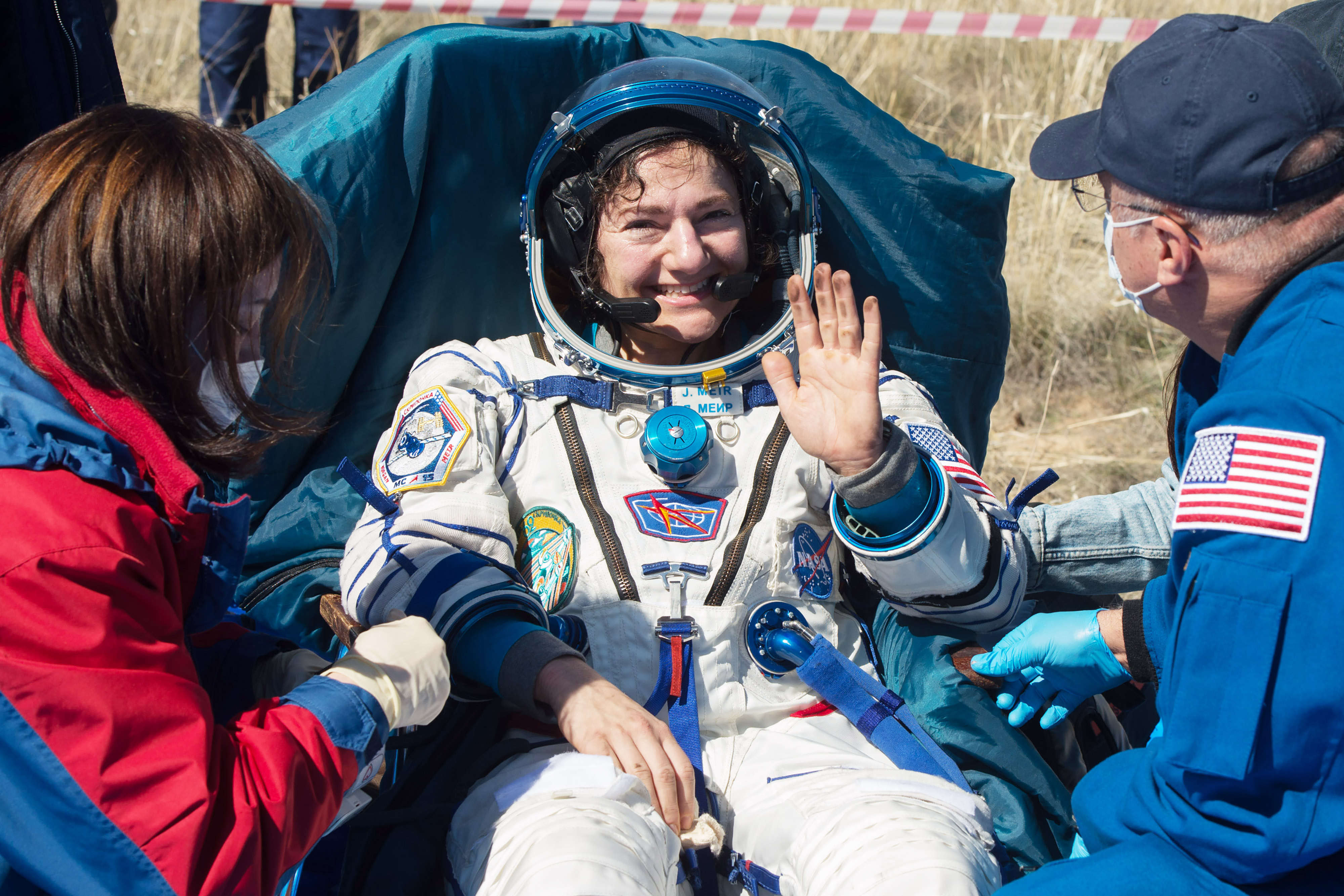Create a free profile to get unlimited access to exclusive videos, sweepstakes, and more!
Astronaut Jessica Meir: Being in space when pandemic broke out like 'start of some science fiction movie'

When NASA astronaut Jessica Meir left Earth last September for a seven-month tour aboard the International Space Station, she and crewmate Andrew "Drew" Morgan left behind a planet whose global population hadn't heard of — much less been affected by — the COVID-19 coronavirus.
But when she returned in April, the world had changed. "We came back to a completely different planet than the one that we had left," Meir explained recently during an interview for MIT Technology Review's Radio Corona podcast. The impact of just how deeply the pandemic had altered life on Earth, said Meir, hit home almost immediately once they were safely back on solid ground.
Upon touching down in Kazakhstan, "the very first thing we saw," she said, was a Russian search and rescue team decked out in PPE gear. "They opened the hatch, and they were all in masks … it did very drastically change all the landing protocols."
Not lost on Meir and her ISS crewmates was the "surreal" experience of realizing that a pandemic was sweeping across the globe beneath them, even as they themselves remained isolated from any possibility of exposure. "That was a very strange feeling as we watched … from this vantage point about 250 miles above," she said. "To think of what was happening on the ground was really a little bit difficult for us to process, and for me, a little bit surreal.
"When we were on the space station, we were looking down … and that was really strange for us to realize that we were the only three humans alive who weren't at risk at that moment. To us, it was like the start of some science fiction movie."
Once they were back on terra firma in April, the pandemic did force some additional precautionary measures to make sure Meir and Morgan weren't at higher risk as their immune systems reacclimated to Earth's gravity. "Physiologically, we have this disregulation of the immune system that can be manifest during or after the mission," she explained, touching on how humans' T-cell counts decline in the microgravity environment of the ISS. The pair spent an entire week in quarantine once they arrived back home, as NASA watched their T-cell count readjust to normal levels.
Along with NASA astronaut Christina Koch, Meir made history in October as part of a two-member team who conducted the first-ever all-female spacewalk. The mission came early in Meir's ISS mission (her first visit to space), and Meir said her appreciation of the milestone's significance took on new life as she began seeing feedback from all the enthused watchers back on Earth.
"I wasn't looking at it really from that lens," she said, noting that her astronaut class at NASA was composed of an even 50/50 split between men and women. "You need to be putting all your focus into just making sure you're ready to go out the hatch." But, she added, "it was absolutely a privilege and an honor — and, actually, to be honest, it was quite overwhelming to see the level of excitement and enthusiasm" beaming back from Earth.


























